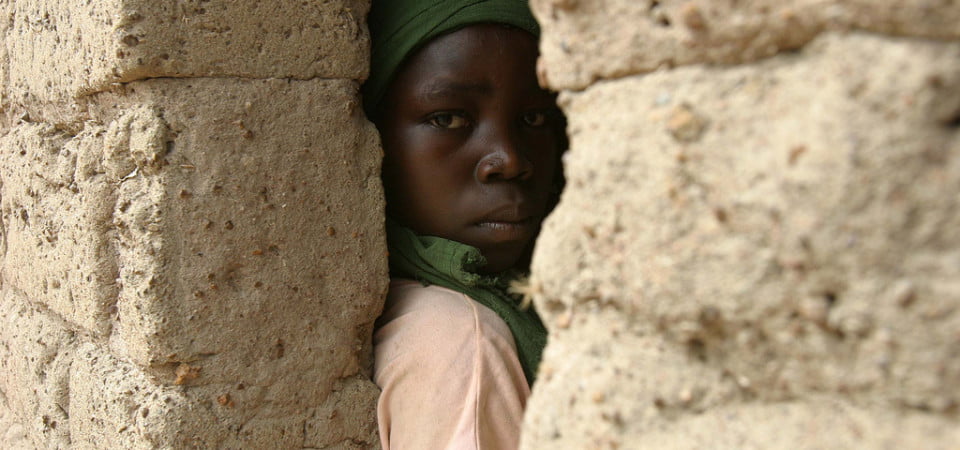Diplomatic Row over Gulen Influence in Africa

Date posted: October 4, 2016
Michelle DeFreese
Fethullah Gulen, the US-based scholar and intellectual originally from Turkey, is credited with founding a global and controversial school of thought known as the Gulenist or Hizmet Movement. Over the past decade, the numbers of supporters and institutions inspired by the movement have grown significantly and spread throughout the world. Though estimates vary, sources suggest that between 3 to 5 million supporters adhere to the movement’s modernist and transnational philosophy. In Africa in particular, Gulenist schools have proliferated as the movement has taken on a global focus.
Nearly fifty years after their founding, Gulenist educational establishments have become rooted into the schools of thought on modern Islam in Africa. Detailed information and data on the number of Gulenist-inspired schools in Africa is sparse. Most of the information on the movement is disseminated through support organizations such as the Gulen Institute,Fethullah-Gulen.org, or the organization’s media arm, Insightful Neighbor. Analysts suggest that there are Gulen schools in 110 countries including Somalia, Mozambique, and Guinea, with 150 charter schools in the United States alone. An estimated 2,000 educational establishments are currently in operation with Gulenist-inspired linkages and curricula, and there are over 110 schools operating in 35 African countries that are affiliated with the Gulenist movement.
Turkey’s relations with African countries have been strained following demands by the Turkish government to close Gulenist schools in Sudan, Nigeria, and Somalia. After the attempted coup in Turkey on July 15, which the Turkish government has accused Gulen of masterminding, Turkey’s ambassador to Nigeria called for 17 Gulenist schools in the country to be closed. Educational leaders from a number of African countries including Senegal, Nigeria, and Kenya have rejected the Turkish government’s demands to close Gulenist schools. In response to these demands, Nigeria’s Minister of Education Adamu Adamu noted that such schools are a domestic issue and will thus be dealt with as such.
During visits by Turkish President Tayyip Erdogan to Kenya and Uganda before the attempted coup in Turkey, efforts were made to leverage diplomatic pressure to reduce and limit the influence of the Gulenist schools of thought. Diplomatic pressure has been increasingly employed by Turkey following the coup attempt. Similar requests for school closures have been made to countries in other regions including Europe. Meanwhile, Turkey has been pushing for the United States to extradite Fethullah Gulen. However, the Gulenist movement has no state boundaries and is now a global movement. Similarly to other transnational movements, the control and regulation of these schools must remain in the hands and authority of the state in which they operate, despite diplomatic pressure from Turkey.
Repercussions in terms of Turkey’s bilateral relations with African countries will become apparent in the continued aftermath of the coup, both in terms of diplomatic relations and development aid. Turkey’s development assistance has grown substantially in the past five years. Formerly an aid recipient, Turkey was the third largest humanitarian aid donor in 2013 and the second largest in 2015. As Official Development Assistance (ODA) becomes a more significant fixture in Turkey’s bilateral relations with African countries, Turkey’s efforts to limit the spread of the Gulenist movement has the potential to demonstrate the impact of political influence on humanitarian assistance and foreign aid decision-making.
Turkey’s influence in Somalia can be explained in part by humanitarian aid provided during the country’s 2011 famine as well as international development projects supported by the Turkish government. In 2013, while only 6 percent of Turkey’s ODA went to sub-Saharan Africa (SSA), Somalia received $115.74 million in foreign aid from Turkey, making it the country’s fourth largest donor at the time. Earlier this year, Turkey opened its largest embassy in the world in Mogadishu, marking an advancement and further commitment to bilateral relations and cooperation between the two countries.
With such high stakes in terms of development aid and cooperation, Somalia acquiesced to Turkey’s demands to close Hizmet founded schools in the country. This reportedly resulted in Turkish workers being required to leave the country. By contrast, the government of the disputed territory of Somaliland refused similar requests to close Gulenist schools. As similar Turkish demands are made to other African countries and diplomatic pressure mounts, the presence of the Gulenist movement in the continent may affect Turkey’s long-term decisions regarding the allocation of humanitarian and development aid to African countries. In the short-term, African leaders will have to decide whether or not to bow to the demands of the Turkish government to curtail the movement’s influence.
In relative terms, ODA is becoming increasingly important as leverage in Turkey’s bilateral relations with African nations. As the global appeal of the Gulenist movement continues to broaden, the expansion and continued existence of the movement’s charter schools will play an increasingly important role in disrupting Turkish-African affairs. According to David Shinn, an expert on Gulenist influence in Africa, “the Gulen movement has been crucial in expanding Turkey’s profile in Africa, and the high-profile falling-out between [Erdogan’s ruling Justice and Development Party] and the Gulenists significantly complicates the future of relations in the NGO sphere – and could prove detrimental for further Turkish engagement in SSA.” Withno signs of Turkey softening its stance on Gulen, the movement will continue to be a fixture affecting diplomatic relations between Turkey and African countries.
About the author: Michelle DeFreese is a consultant with the Institute for Multi-Track Diplomacy (IMTD) based in Tanzania. She completed her Master’s degree in International Relations at the Graduate Institute of International and Development Studies (IHEID) and is an Africa Fellow at Young Professionals in Foreign Policy, a Thought Partner for the World in 2050 series.
Source: The Diplomatic Courier. , October 3, 2016
Tags: Africa | Defamation of Hizmet | Education | Nigeria | Persecution of Hizmet by Erdogan | Somalia | Sudan |
























